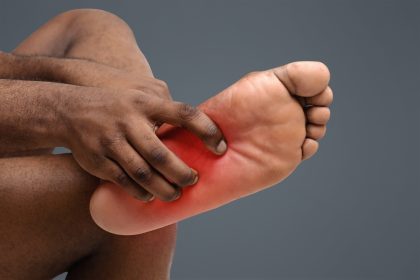Have you ever experienced a sensation where your fingers get numb or tingle? This phenomenon can be alarming and uncomfortable. Understanding what it means if your fingers get numb or tingle is crucial to identifying the underlying causes and finding appropriate treatments. This article will explore various reasons behind this sensation, potential associated medical conditions, and possible solutions to alleviate it.
Causes of numbness and tingling in fingers
Numbness and tingling in the fingers can result from various factors. Here are some common causes:
- Nerve compression
- Carpal tunnel syndrome: One of the most frequent causes of numbness and tingling in the fingers is carpal tunnel syndrome. This condition occurs when the median nerve, which runs from the forearm into the palm, becomes compressed at the wrist. Symptoms often include numbness, tingling, and weakness in the hand.
- Cubital tunnel syndrome: Similar to carpal tunnel syndrome, cubital tunnel syndrome involves the compression of the ulnar nerve at the elbow. This can lead to numbness and tingling in the ring and little fingers.
- Poor circulation
- Raynaud’s disease: This condition causes some areas of your body, such as your fingers and toes, to feel numb and cold in response to cold temperatures or stress. During an attack, the affected areas usually turn white and then blue.
- Peripheral artery disease (PAD): PAD is a condition in which the arteries that supply blood to the limbs become narrowed, reducing blood flow and causing numbness and tingling in the fingers.
- Vitamin deficiencies
- Vitamin B12 deficiency: Vitamin B12 is essential for nerve health. A deficiency in this vitamin can cause neurological symptoms, including numbness and tingling in the fingers.
- Vitamin D deficiency: Although less common, a lack of vitamin D can also contribute to nerve problems, leading to similar sensations in the fingers.
- Injuries
- Trauma: Injuries to the hand, wrist, or arm can damage nerves and blood vessels, leading to numbness and tingling in the fingers. Fractures, sprains, or repetitive stress injuries are common culprits.
- Repetitive motion: Activities that involve repetitive motion, such as typing or playing musical instruments, can strain the nerves and tendons in your hands and wrists, causing numbness and tingling.
Medical conditions associated with numbness and tingling
Several medical conditions can cause numbness and tingling in the fingers. Understanding these conditions can help in seeking appropriate medical care:
- Diabetes
- Diabetic neuropathy: One of the complications of diabetes is diabetic neuropathy, which affects the nerves. High blood sugar levels can damage nerves over time, leading to numbness and tingling in the hands and feet.
- Multiple sclerosis (MS)
- Neurological symptoms: MS is a disease that affects the central nervous system. It can cause neurological symptoms, including numbness and tingling in the fingers.
- Thyroid disorders
- Hypothyroidism: An underactive thyroid can cause various symptoms, including numbness and tingling in the hands and fingers. This is due to the effect of hypothyroidism on nerve function.
- Autoimmune diseases
- Lupus: This autoimmune disease can cause inflammation in various body parts, including the nerves, leading to numbness and tingling.
- Rheumatoid arthritis: Inflammation from rheumatoid arthritis can compress nerves and cause similar sensations.
Diagnosing the cause of numbness and tingling
If you experience persistent or severe numbness and tingling in your fingers, it is essential to seek medical advice. A healthcare professional can perform various tests to determine the underlying cause:
- Physical examination
- A thorough physical examination can help identify any visible nerve or blood vessel damage signs. The doctor may check for signs of swelling, deformities, or muscle weakness.
- Blood tests
- Blood tests can help identify underlying conditions such as diabetes, vitamin deficiencies, or thyroid disorders, providing valuable information for diagnosis and treatment.
- Imaging studies
- X-rays: X-rays can help detect bone fractures or other skeletal abnormalities that may compress nerves.
- MRI: An MRI can provide detailed images of the soft tissues, including nerves and blood vessels, helping to identify conditions like carpal tunnel syndrome or herniated discs.
- Nerve conduction studies
- These tests measure the electrical activity of nerves and can help diagnose conditions like carpal tunnel syndrome or diabetic neuropathy.
Treatment options for numbness and tingling
Treatment for numbness and tingling in the fingers depends on the underlying cause. Here are some standard treatment options:
- Medications
- Pain relievers: Over-the-counter pain relievers such as ibuprofen or acetaminophen can help alleviate pain and inflammation.
- Prescription medications: In some cases, prescription medications such as anticonvulsants or antidepressants may be used to manage nerve pain.
- Physical therapy
- Physical therapy can help improve strength and flexibility in the hands and wrists. Specific exercises can alleviate symptoms and prevent further nerve compression.
- Lifestyle changes
- Ergonomic adjustments: Making ergonomic adjustments to your workspace, such as using a wrist rest or adjusting the height of your chair, can reduce strain on your hands and wrists.
- Dietary changes: Ensuring a balanced diet with adequate vitamins and minerals can help prevent deficiencies that contribute to nerve problems.
- Surgery
- In severe cases, surgery may be necessary to relieve nerve compression. Procedures such as carpal tunnel release or ulnar nerve transposition can alleviate symptoms and improve nerve function.
Preventing numbness and tingling in fingers
Preventing numbness and tingling in your fingers involves adopting healthy habits and making lifestyle changes:
- Maintain proper posture
- Ensuring proper posture while working or performing activities can reduce the risk of nerve compression. Keep your wrists in a neutral position and avoid repetitive strain.
- Take regular breaks
- Taking regular breaks from activities that involve repetitive motions can help prevent strain on your hands and wrists. Stretching exercises can also improve circulation and reduce tension.
- Stay active
- Regular exercise can improve circulation and overall nerve health. Activities such as yoga, swimming, or walking can be beneficial.
- Manage underlying health conditions
- Managing chronic health conditions such as diabetes, thyroid disorders, or autoimmune diseases can prevent complications that lead to numbness and tingling.
Conclusion
Understanding what it means if your fingers get numb or tingle is essential for identifying potential causes and seeking appropriate treatment. Various factors, from nerve compression to underlying medical conditions, can contribute to this sensation. By recognizing the symptoms and consulting a healthcare professional, you can find effective solutions to alleviate numbness and tingling in your fingers. Adopting preventive measures and making lifestyle changes can also help maintain optimal nerve health and prevent future occurrences.
This story was created using AI technology.

















